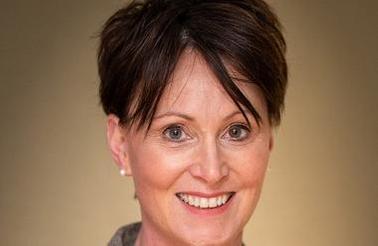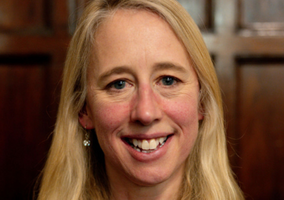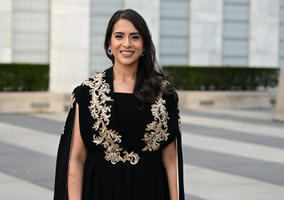In challenging times for fundraising, the MND Association has grown its income significantly over the past few years.
Tanya Curry became the charity’s chief executive in January last year after the charity had seen it income rise from £19.9m in 2020 to £30.1m in 2022.
The charity, which is mostly funded by donations, had seen its profile rise through patron Rob Burrow.
Burrow was diagnosed with motor neurone disease in December 2019, two years after retiring from rugby league.
Since then, Burrow’s former teammate and fellow patron Kevin Sinfield has taken part in a series of extreme fundraising challenges to raise money for the charity. This included Sinfield running seven ultra marathons in as many days in December last year, which raised more than £2.5m in donations.
Curry says the charity has a lot to be thankful for around Burrow and Sinfield’s support, which gave the charity its first major income boost since the Ice Bucket Challenge went viral in 2014.
While the fundraising and increased profile in recent years has benefitted MND Association greatly, Curry says it also restricted its ability to reassess how it operates, which other charities did during the Covid-19 pandemic.
“I think we were probably one of the few charities whose profile and income increased during that time. And that was great, because the team were busy, heads down, working hard on delivering everything that a raised profile gives you. What it doesn’t allow, though, is what most other charities went through.
“So, it was a bit of a double-edged sword. I never want to say it was a bad thing, because it wasn’t at all. It gave the organisation such a platform on so many levels but it meant that people were just working rather than heads up and lifting off the blinkers and thinking how we need to work differently.”
Therefore, doing this more strategic work has been a focus for Curry in her first year at the helm.
Moving from the public sector
Curry left home at 17-years-old and moved to Chelmsford in Essex to train as a nurse. After a three-year course, she qualified and worked in surgery and in medicine before discovering she particularly enjoyed working with people with end-of-life conditions.
When she moved to a hospice charity, Curry said she saw a cultural difference from the public sector. “What I loved about the charity sector was you could give people time. You could equally make decisions at pace but actually, you could really visualise where you needed to get to. It felt it was easier to get traction on some of those changes that directly impact people’s lives, so you can do it more quickly and more effectively.”
She joined St Clare Hospice in Harlow as director of clinical services before being promoted to chief executive, a role she held for nine years. “We did some real transformational change, taking it from a very small, impatient focused hospice to a much larger community focused organisation where we developed a services and clinics and outpatients and its first ever community service.”
After feeling like she had “done everything that I wanted to do and more” at the hospice charity, Curry left in 2017 and was self-employed until she began her current role in 2023.
Interim leadership
In the intervening years, Curry held several temporary roles at national charities. This was a conscious decision, Curry says, to gain experience after completing an MBA qualification.
“I felt I had more to give but more to learn. And I wanted to work with different leadership teams, different boards, and also to get out there on the national charity circuit and see what’s going on.
But, Curry says, it felt like “quite a risky” career move.
“At the time, I was a single mum. I had a mortgage, responsibility of two young kids, and suddenly left a well-paid very secure job to not knowing what my next piece of work was going to be. But I loved it.”
Curry held interim director roles at Sue Ryder and Teenage Cancer Trust before being offered the chance to lead walking charity the Ramblers in early 2020.
“I remember getting the call and my recruiter going don't put the phone down, just hear me out because I really think they will need you. And it piqued my interest.
“But literally three weeks after I arrived, we went into lockdown. So, I was going in to hold the fort for a maximum of six months to what turned into two and a half years of doing crisis leadership and total transformational change in that organisation. Because everything we looked at needed shifting, moving, changing, supporting. So, that was a really interesting time.”
Curry then moved to private equity foundation Impetus, where she was CEO during maternity cover. This was another new experience, she says, as the organisation was focused more on funding other charities than delivery services directly itself.
“I think what I learned in that one was I’m not very good at sharing. I wasn’t great at maternity cover because it was a real ‘holding the fort’ assignment and that’s not where my strength lies. I’m too curious and I like all the gritty stuff. So, that wasn’t quite the one for me, but loved it while I was there.”
In each interim role, Curry says she was asked to apply for a permanent position but she turned the offers down. “I really wanted to stick to my guns and, actually, I made the conscious decision to do interim for a reason.”
When Curry was approach to lead MND Association, she decided it was the right time to take on her first permanent position in more than five years.
“It just felt like an amazing cause that played to all my strengths clinically, and my background, plus the leadership of a really up and coming evolving organisation.
“Then as soon as I started researching, and having more conversations about the role, it kind of didn't matter whether it was interim or permanent, because it just felt like a really good fit.”
First year in charge
Curry says she planned to pace herself when she began as MND Association CEO, but she ended up having a “really busy first year”.
She says she was greeted by “a lot of people asking me questions, asking me to make decisions, on fairly big things really quickly”.
Curry’s experience as an interim leader prepared her for the busy first year, she says, but the charity was unable to “do as much outward facing work as I want it to”.
“That’s a big focus for me this year – it’s about really engaging with our community, really hearing what we do well, but what we need to improve, and actually making this organisation much more agile and how it works and much more proactive rather than reactive.”
Despite its recent income rise, Curry says there is capacity for the charity to grow further. “I don’t think we’ve tapped into all that potential yet. But equally, I think we can be investing more in our areas of work.”
Curry has hired a new senior leadership team, with a few members arriving by the end of May. “We’re really working on our team culture, how we do things, how we operate, how we communicate, all of those things to just try and make things a lot quicker and a lot sharper, and making sure we’ve got a real focus.”
Ultimately, the charity’s aim is to help discover a cure for MND and therefore no longer need to exist. Its overall expenditure was £22.8m in 2022, of which it spent around a third on research and a similar proportion on care for people with the disease. The rest it spent on campaigning and raising funds.
Due to its successful fundraising in recent years, the charity’s income has exceeded its expenditure. Part of Curry’s job has been to decide where to invest.
In February this year, the charity announced it was investing up to £5m over the next five years in a network of “research nurses” across the country.
“We were hearing and seeing that people attending clinics for MND are not always having the time and the conversations they need with the right people in the room about potential research and trials that they can take part in. So, we wanted to actually invest in roles that will work in clinics and out there in the community to really help bridge some of those conversations.”
Plans for future
Now in her second year at MND Association, one thing Curry hopes to achieve during her tenure is to grow the organisation and make its processes more joined-up.
“I do want to see a bigger, more responsive organisation that is absolutely on the front foot for people with MND. I want to see better, quicker, internal processes that make us less clunky, less siloed. And I want us to be on the front foot with some of those conversations about research and trials and treatment and what regulatory processes can look like. And making sure that we are a credible influencer at the table with some of those decision makers.”
Starting out in the public sector, Curry expects to spend the rest of her career working with charities.
“I’m always mindful when the culture of the sector gets criticised that I’m a part of it and have been for so long. So, I hope I remain in the sector. I hope I always remain open and fresh and engaged with future leaders and future ideas. I see younger people around me coming through and you want to make sure you make way for those people and you learn from them, but you also help them because they’re our leaders of the future.
“So, I guess that’s probably the next phase of my career – how I enable other people to come through and take these organisations on to being even better than they are now. That feels quite exciting.”
Related Articles












